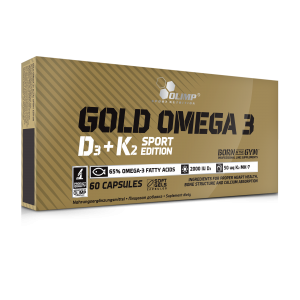The body's protein demand

PROTEIN
As we know, physical activity, particularly in competitive athletes, increases the body's demand for energy and a range of nutrients necessary for its proper functioning.
An optimally designed diet should ensure, among other things, an adequate supply of proteins – necessary for maintaining levelled or positive nitrogen balance ensuring the preservation of or increase in muscle mass. Proteins are valuable building blocks of nervous and glandular tissue, they are components of body fluids and secretions, such as blood, enzymes and hormones, as well as contribute to important regulatory and transport processes.
As a consequence of hard muscle work we have to deal with increased catabolism of structural, enzyme and transport proteins, and this is why the body of an athlete has an increased demand for this nutrient. Protein intake should be increased proportionally to the increase in the overall energy content of the diet.
It is assumed that the supply of this component in the diet should be around 1.4 g/kg bw in endurance, 1.8 g/kg bw in speed-strength, and 2-2.5 g/kg bw in strength disciplines. Clearly, these are general assumptions, since the extent of protein intake is influenced, in addition to the type, extent and intensity of the workout, by gender, age, body condition, body composition, environmental conditions and dietary factors such as the overall energy content or protein quality.
In athletes, the demand for high-quality protein can not always be met with typical diet. Most of the food products of animal origin, high in protein, contain large quantities of fat, particularly saturated fatty acids, which adversely affect the absorption and metabolism of amino acids. On the other hand, products of plant origin are rich in proteins characterised by low content of exogenic amino acids and large disparities in amino acid composition. In this respect, plant proteins have low nutritional value and their increased intake may lead to certain deficiency symptoms. Furthermore, the fibre present in plants hinders the process of enzymatic digestion of proteins and absorption of amino acids into the bloodstream.
In view of the above, special protein or carbohydrate-protein formulations gain on particular importance in sports nutrition – those having optimal amino acid composition, easily digested and metabolised, and enriched with a set of essential vitamins and minerals. The category of protein supplements that may be of use in sports nutrition also includes formulations containing free amino acids and short peptides the main advantage of which is their fast absorption.
Exhaustive training also increases the demand for energy-supplying amino acids such as alanine, leucine and isoleucine, as well as those inhibiting fatigue, thus in certain cases it seems advisable to deliver protein supplements selectively enriched in certain amino acids. In many sports, attention is paid to increased supply of branched-chain amino acids (valine, leucine and isoleucine – BCAA) and of glutamine, arginine and tryptophan.
BACK ›

